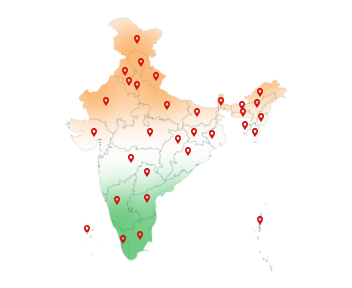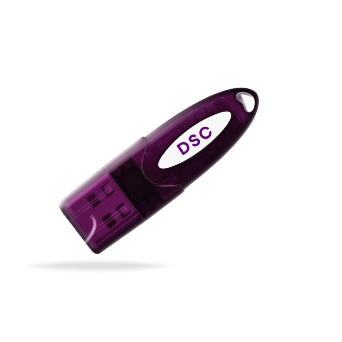15-Jul-2025
Income Tax vs GST: Digital Signature for Online Filing
Most people think filing GST and Income Tax online means juggling two separate Digital Signature Certificates (DSCs). But is that true? Or is it just another compliance myth costing businesses extra time and money?
In reality, the difference isn't about owning two DSCs — it's about where and how you register and link them. In this post, we'll explain the real difference between Income Tax and GST when it comes to DSCs, and how a single DSC from Capricorn CA can cover both needs.
What is Income Tax?
Income Tax is a direct tax that you pay on the money you earn. Whether you're a salaried employee, a business owner, a freelancer, or an investor, if your income crosses a certain limit set by the government, you are required to pay Income Tax.
This tax is collected directly by the Central Government and is used to fund public services like infrastructure, healthcare, education, and defense. You file Income Tax returns once a year, usually by July 31st for individuals, using forms like ITR-1 to ITR-7.
What is GST?
GST, or Goods and Services Tax, is an indirect tax that you pay when you buy goods or use services. It's included in the price of almost everything you purchase — from a cup of coffee to an online subscription. Businesses collect this tax from you and then deposit it with the government.
GST is designed to replace multiple indirect taxes like VAT, service tax, and excise duty, creating a unified tax structure across India. It's governed by both the Central and State Governments, and rates vary depending on the product or service, usually 5%, 12%, 18%, or 28%.
Who Pays What?
Income Tax - In Income Tax, you (the individual or business earning money) pay the tax directly based on your income or profit.
GST - In GST, you also pay, but indirectly — it's collected by the seller and then passed on to the government. So, while both taxes ultimately come from your pocket, the way they're collected is different.
How Often Are They Filed?
Income Tax - Income Tax returns are filed once a year. Businesses and individuals must declare their earnings and pay tax accordingly.
GST - In contrast, GST returns are filed monthly or quarterly, depending on the size of the business. Businesses have to report how much tax they collected and paid on sales and purchases.
Different Purposes
Income Tax -Income Tax helps the government raise money based on how much citizens earn. It's a measure of your financial ability to contribute to national development.
GST - GST, on the other hand, is aimed at making the taxation of goods and services more transparent and efficient. It simplifies the tax system, removes double taxation, and creates a single national market.
Need help with digital signatures for Income Tax or GST? Buy your DSC quickly and securely with Capricorn CA.
In Simple Terms
1. Income Tax is what you pay for earning money.
2. GST is what you pay when you spend money or buy something — for example, when you buy an Income DSC.
Both are crucial for running the country — one from your income, and the other from your consumption.
Conclusion
When it comes to Income Tax vs GST, the difference lies in how the DSC is linked and used, not in the DSC itself. A valid Digital Signature Certificate from trusted providers like Capricorn CA helps ensure compliance with both tax systems.
By understanding the Difference Between GST and Income Tax and correctly registering your DSC on both portals, including the income tax efiling site and GST portal, you can simplify filings, save time, and stay compliant with Indian tax laws.


